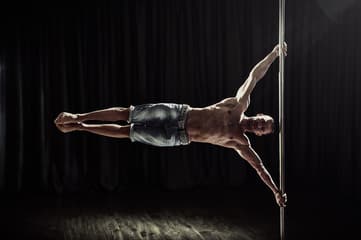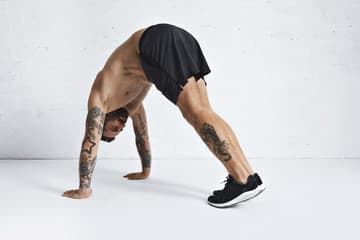
The human flag is a feat of strength where the body is parallel to the ground supported by a vertical bar. A straight line is formed using the arms and body. The trick requires the performer to have extensive upper body strength.

A grip that is neither supinated nor pronated, but with palms facing each other. While doing parallel bar dips, you use a neutral grip.

The push-up is a common calisthenics exercise beginning from the prone position. By raising and lowering the body using the arms, push-ups exercise the pectoral muscles, triceps, and anterior deltoids, with ancillary benefits to the rest of the deltoids, serratus anterior, coracobrachialis and the midsection as a whole.

Pike push-ups are a difficult version of the traditional push-up that emphasizes your shoulder muscles. Incorporating this type of push-up into your exercise routine can help build additional strength, muscle mass and improve weak areas in your shoulders.

The pronated grip, also known as overhand or palms-down grip, is a grip where the palms face downwards. With a pronated grip, the emphasis is on the lats, rhomboids, and deltoids - all large muscles in the upper back and shoulders. While doing pullups, you use a supinated grip.

The supinated grip is also known as an underhand or palms-up grip. When you're using this grip, your palms should be facing, you guessed it, upwards. A supinated grip activates your biceps brachii, brachialis, and brachioradialis – all of which are muscles in the front of the upper arm that play a significant role in elbow flexion and forearm supination. While doing chinups, you use a supinated grip.
Learn everything about Calisthenics